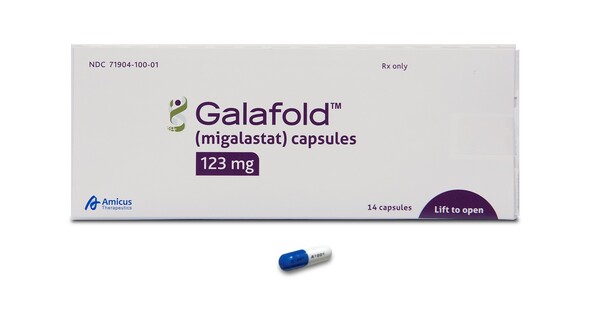Researchers have released results from a long-term study of Galafold (migalastat) in Korean patients with Fabry disease and a compliant mutation.
Professor Cheon Chong-kun of the Department of Medical Genetics at Pusan National University Children's Hospital presented these findings at the 70th fall meeting of the Korean Society of Medical Genetics and Genomics (KSMG) at Kim Koo Museum & Library in Seoul last Thursday. The study confirmed the safety and efficacy of long-term Galafold treatment.

This study is the first Korean RWE (Real-World Evidence) from post-marketing surveillance at six institutions (December 2017–December 2023), showing trends consistent with global clinical data and overseas RWD (Real-World Data).
Fabry disease is a rare, inherited disorder caused by a deficiency of the enzyme alpha-galactosidase A, which leads to the buildup of fatty substances in the body's cells. This can cause symptoms like pain in the hands and feet, a skin rash, decreased sweating, and gastrointestinal issues. Over time, it can lead to severe complications, including kidney failure, heart problems, and stroke.
A total of 18 patients (mean age, 49.8 years; 55.6 percent men) participated, with a median Galafold treatment duration of approximately 537 days.
Seven patients (38.9 percent) experienced adverse events. Two (11.1 percent) experienced three unexpected adverse drug reactions.
One patient (5.6 percent) experienced two serious adverse events unrelated to Galafold.
No Fabry-associated clinical events or permanent treatment discontinuations occurred.
After one year, median eGFR change was –0.9 mL/min/1.73 m² (n=15), maintaining stable renal function, similar to overseas data over 3.9 years.
Professor Cheon commented on these outcomes, stating, “Although Fabry disease requires lifelong treatment, early diagnosis and appropriate initiation of therapy enable patients to lead normal lives,” and emphasized, “This study also confirmed that renal function tends to remain stable in patients receiving long-term treatment with Galafold.”
Galafold is an oral treatment for patients with Fabry disease who have compliant mutations. Developed by Amicus Therapeutics and supplied in Korea by Handok, it received marketing approval in Korea in 2017 and is currently used in over 40 countries, including the U.S., U.K., Australia, Japan, and Europe.
In 2019, Galafold received insurance coverage for long-term treatment of Fabry disease patients aged 16 years and older with the compliant variant. This past August, coverage was expanded from a second-line to a first-line treatment for patients aged 12 years and older, reflecting growing recognition of its therapeutic value.
Related articles
- Reimbursement for oral Fabry disease drug Galafold expanded to 1st-line treatment
- Sanofi Korea joins hands with DeepCardio to improve diagnostic environment for Fabry disease
- AI model detects and classifies thickened heart using only ultrasound
- Galafold confirms effectiveness in treating teens with Fabry disease
- Fabry disease patient urges reform of reimbursement standards for early treatment

